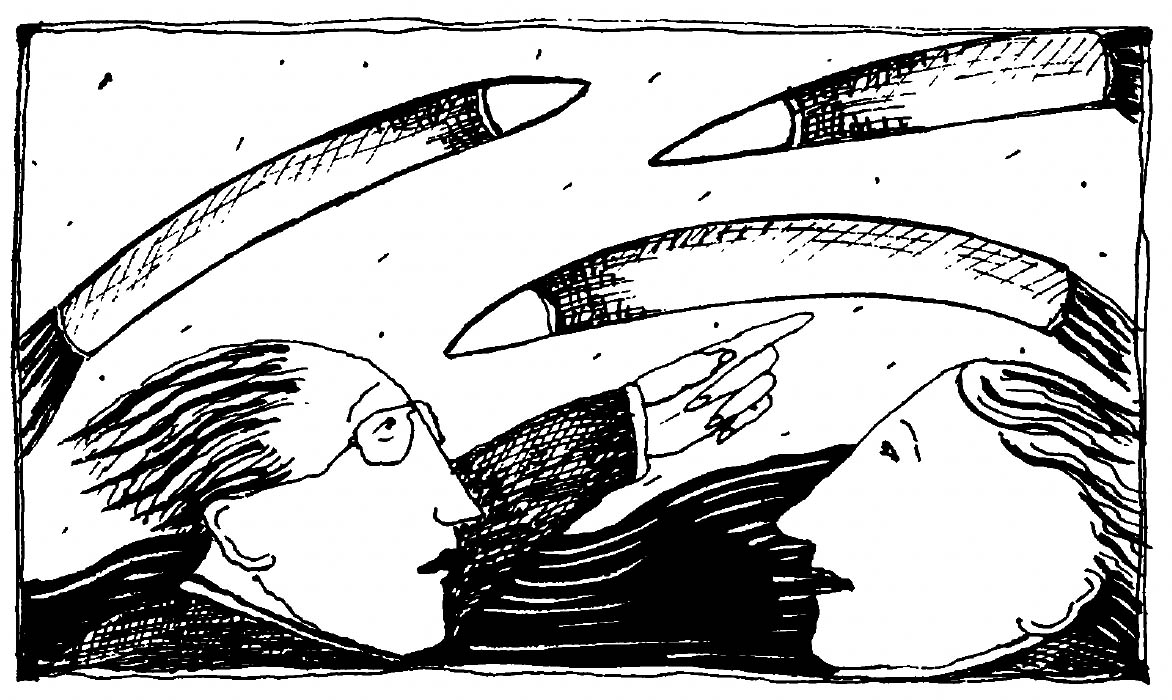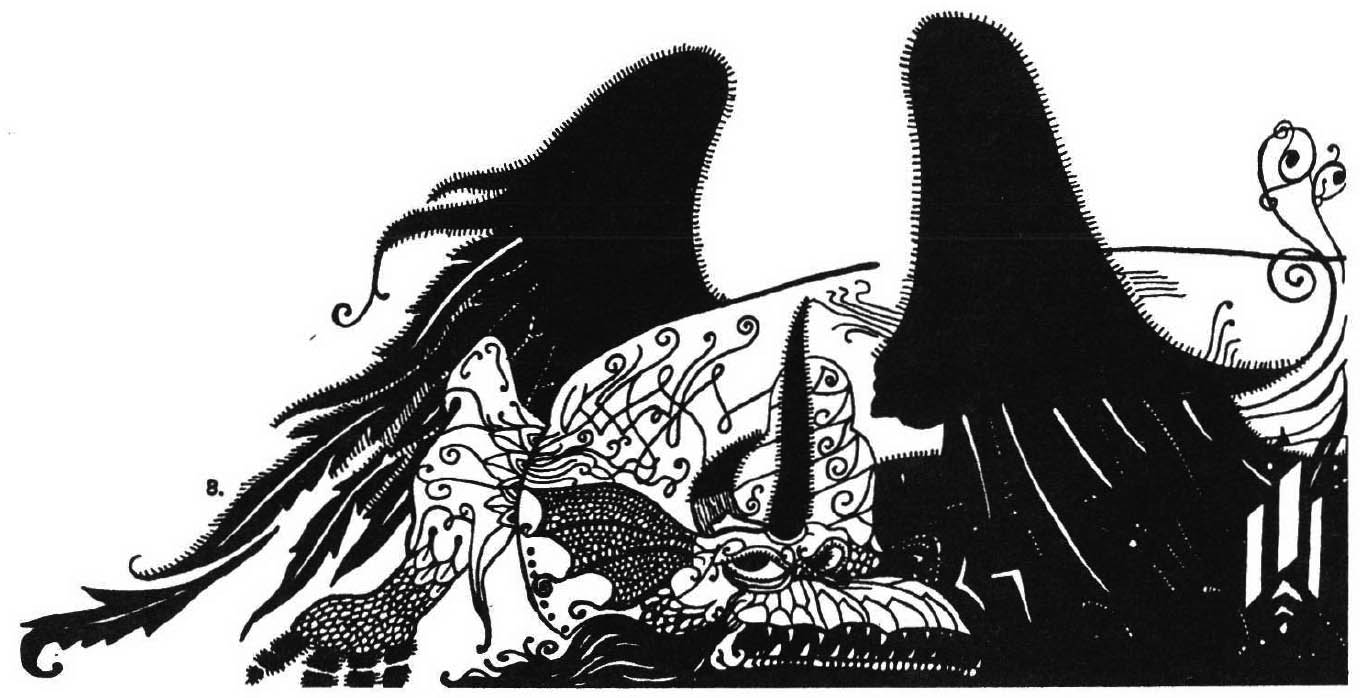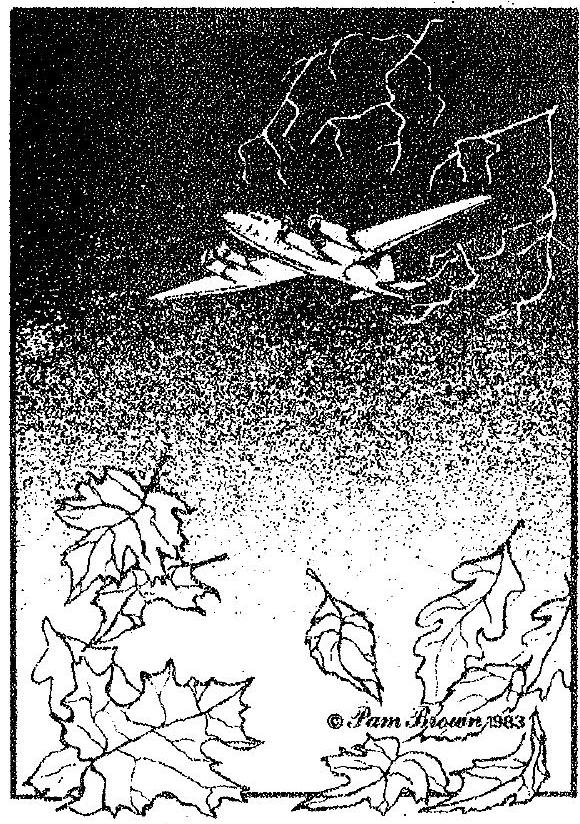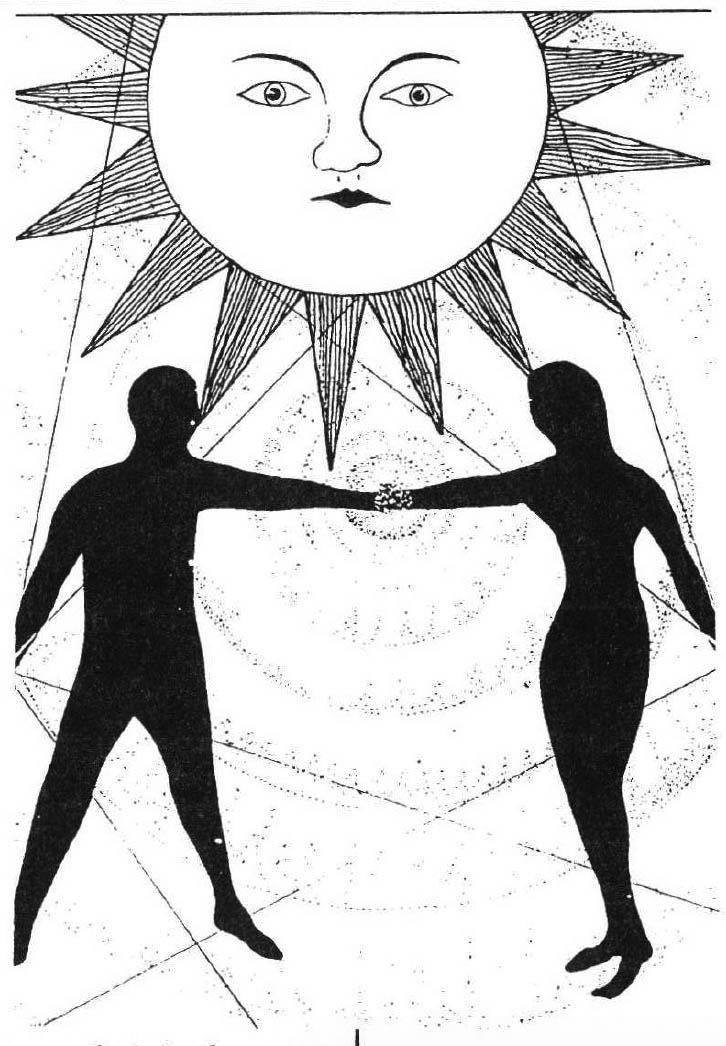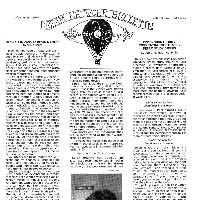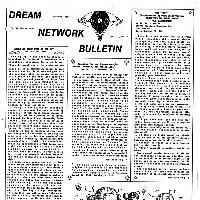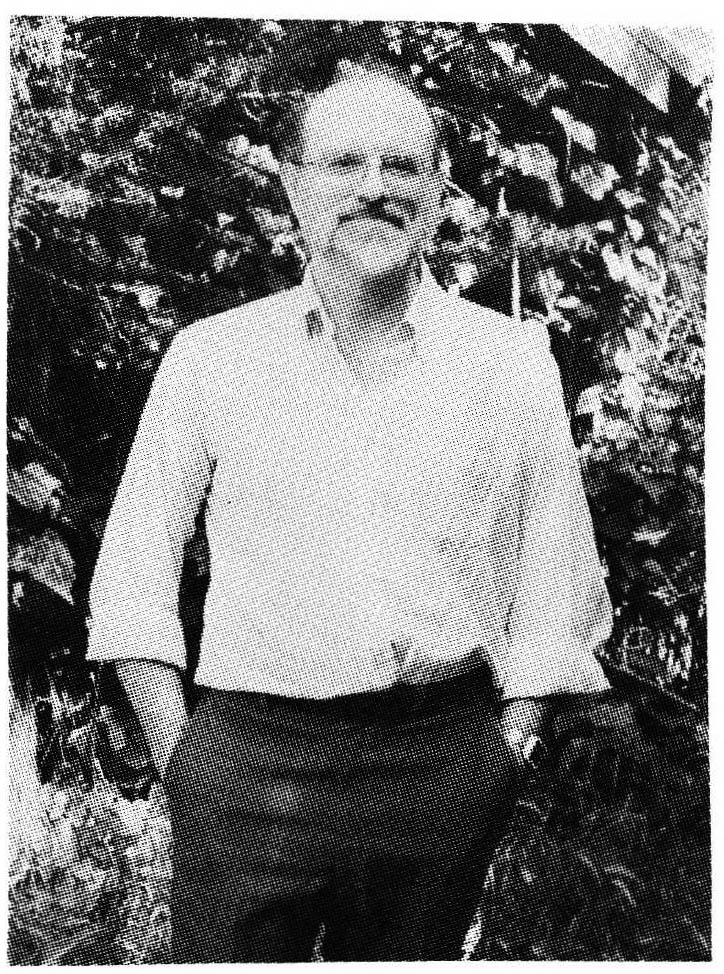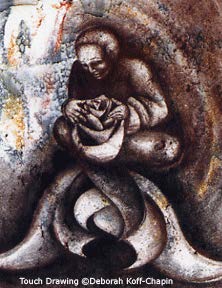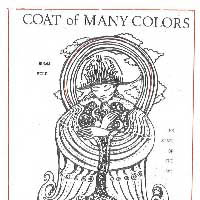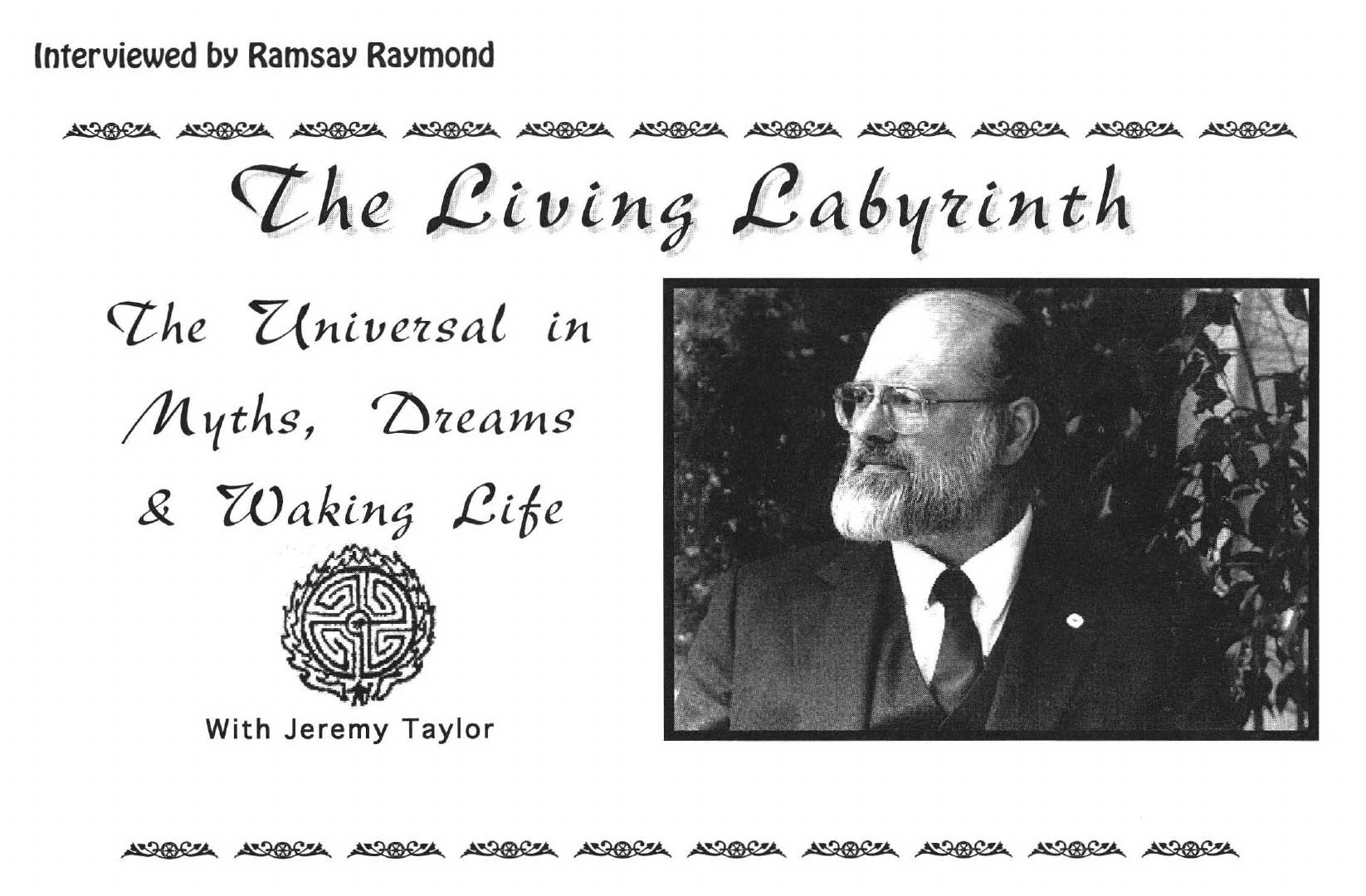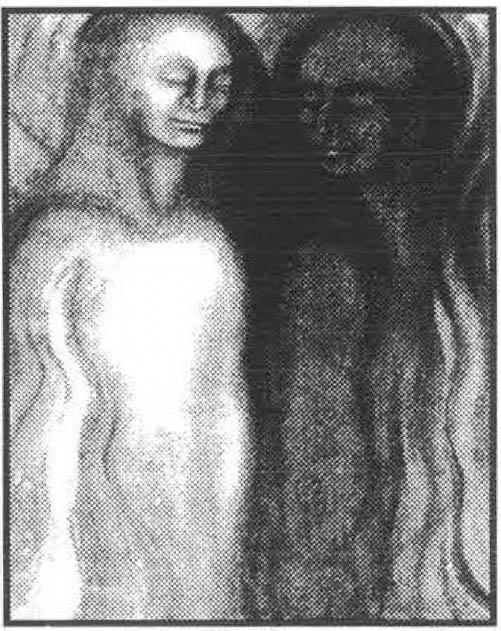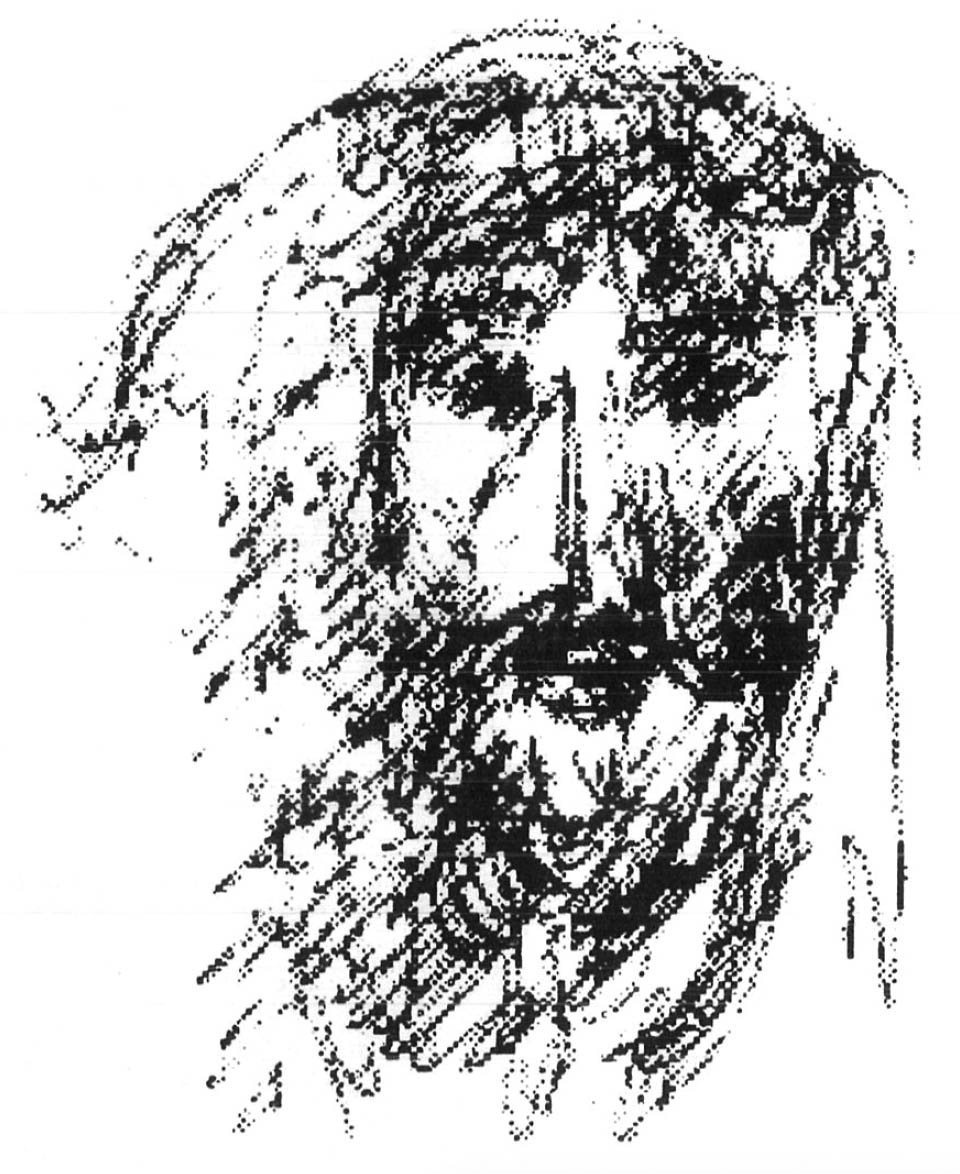
The Universality of Dreams, Revealing "God's Will"
The sacred narratives of the world are united and speak with one voice on this question: we human beings are more directly connected and in deeper communion with the Divine in our dreams than in any other regular state of conscious awareness. This archetypal connection between dreaming and communion with the Divine is made in the Jewish and Christian scriptures, just as it is in the sacred narratives of all the other world religions. The Torah, the canonical Old and New Testaments, as well as the Jewish and Christian Apocryphal, all relate compelling stories of "God's Will" being revealed to people in and through their dreams.
The Prohibition Against Dreamwork
And yet, in virtually all contemporary institutional Jewish and Christian religious practice, remembering and exploring dreams is either clearly prohibited, or at least strongly discouraged. On the face of it, this is a very odd state of affairs.
I believe this ironic circumstance is a direct consequence of the fact that all dreams come in the service of health and wholeness. It is precisely because the authority of Divine Revelation through dreams is so clearly attested to in Scripture that the institutional churches and synagogues almost always find it necessary to discourage and prohibit dreamwork. If it were not prohibited, it would be all too possible for anyone, the scruffier and more malcontent the better (since the archetypal figure of the prophet regularly presents an image of scruffiness and malcontentness) to speak up from the back row of any congregation, any Friday night, or any Sunday morning, and say, "I had a Divinely inspired dream last night, and God told me to tell all of you...!" And with that, fueled by the undeniable authority of direct dream inspiration from God enshrined in Scripture, whatever "heresy" was spawned by last nights' dreams would be off and running, because no merely human authority in any merely local pulpit would be able to stand against it with equal force.
It is precisely because the scriptural authority of dream inspiration directly from God is so strong that in order to preserve what Presbyterians like to call "decency and good order", it has been seen as necessary, over and over again, in the history of institutional religious practice to disparage and marginalize dreamwork.
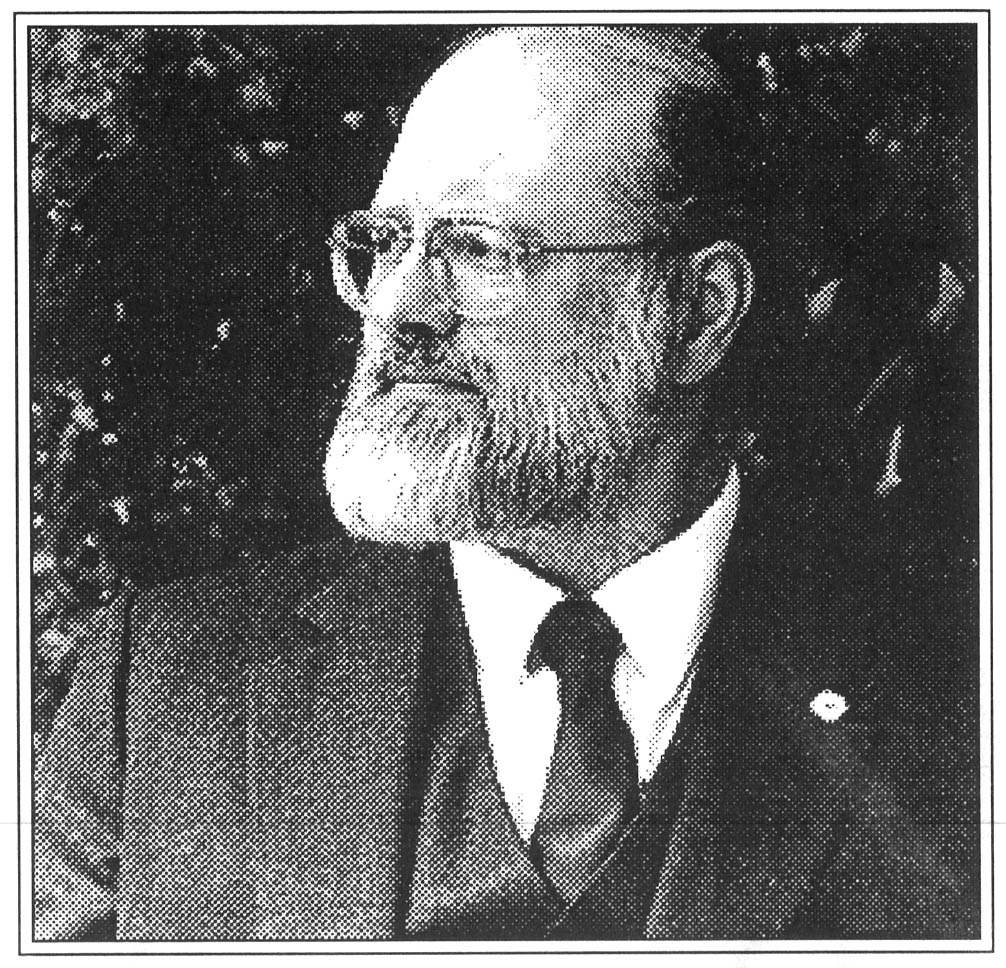
The Brief Resurgence of Protestant Dreamwork
At the end of the Middle Ages when the Protestant reformation rejected the traditional episcopal authority of the Bishop of Rome, there was a brief reassertion of seeking direct divine inspiration through dreams as the Bible suggests so clearly, but the various warring bands of Protestants soon discovered what the Roman Catholic predecessors had already learned - that dreams are the natural enemies of rigidity and dogma, and regular attention to dreams inevitably tends to undermine social arrangements that rely on and perpetuate dogmatic formulations of religious and spiritual truths.
Even when the original spiritual inspiration for a dogmatic formulation comes directly from compelling dreams and waking visions and directly reflects archetypes of the collective unconscious to begin with, subsequent dreams always continue to come in the service of even greater wholeness and spiritual vitality, inevitably pointing out ways in which the dogmatic formulation is prematurely closed and incomplete.
The Archetype of "Willing Sacrifice"
Like dreaming, the archetype of "Willing Sacrifice" is also found at the center of virtually all sacred narratives around the world. Christianity stands among the other world religions, not above them, in giving concrete historical and institutional religious shape to the archetype of "Willing Sacrifice".
From a psychological point of view, "Willing Sacrifice" also reveals the primary structure of the drama of evolution. It reflects the basic symbolic shape of the continuing growth and development of the drama of evolution. It reflects the basic symbolic shape of the continuing growth and development of human consciousness, both individual and collective. In order to go on growing and evolving, every person (and every society) must consciously and "willingly" relinquish the hard won achievements of self-image and self-awareness of past experience in order to be truly open to the possibilities of new life and evolving consciousness.
Willing Sacrifice & the Dilemmas of Parenthood
One of the classic dilemmas of parenthood provides a clear example of the existential shape of this archetypal drama. It is generally understood that it is the job of a good parent to protect a young child from inappropriate and premature sexual knowledge and experience, but at some point, that same good parent must "reverse field" completely and provide and promote appropriate sexual information to the growing pre-adolescent whom the young child inevitably becomes. This necessary transformation of previous consciousness, self-definition, and behavior requires the parent to willingly and consciously give up specific ways of "being a good parent" to a small child, in order to cultivate new ideas and behaviors that reflect "being a good parent" to a pre adolescent.
Knowing exactly when this dramatic shift of archetypal parenting responsibilities is appropriate and necessary is one of the most poignant dilemmas and struggles of parenthood. It is also a moment that is always announced well in advance in the dreams of both parents and children. This is only one example of how cultivating the habit of family dream sharing can be one of the best and most easily available means of successfully overcoming miscommunication and lovingly bridging the "generation gap."
Dreams, Willing Sacrifice, & Individuation
This is only one relatively clear example of the archetypal drama of "Willing Sacrifice" that repeats itself in symbolically similar ways, like an endless spiral, at each stage of developing psycho-spiritual maturity. Carl Jung called this universal process of human development "individuation". At each step of the way, previous achievements of self-awareness must be let go consciously in order for authentic growth and development to take place. The more conscious and self-aware one has become, the more conscious ("willing") this "letting go" (sacrifice) must be, each time it takes place. This is a process of metaphoric death and rebirth that leads to greater and greater psycho-spiritual maturity. Our dreams come regularly and give compelling symbolic and metaphoric shape to our interior psychospiritual unfoldment, and the ever expanding possibilities of communion with the Divine. No matter how complex and challenging their messages may be, we can not afford to ignore them.


